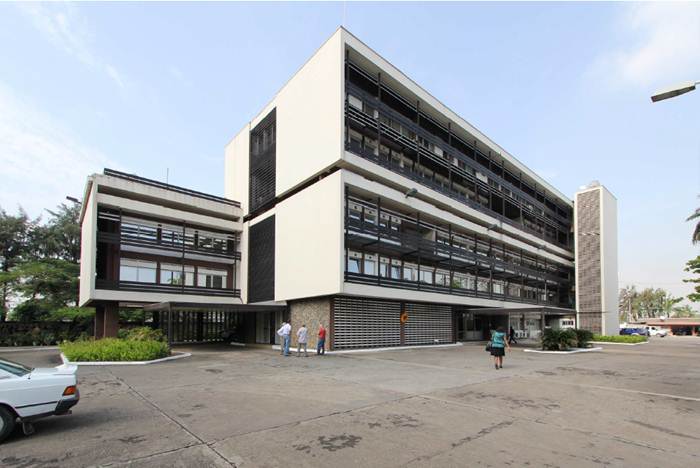Germany is emerging as a favorite destination for students pursuing their higher studies. The number of foreign applicants applying to Germany in seek of higher education is steadily increasing yearly. One reason for this is that universities in Germany are of very high standards in terms of world ranking, reputation and international acclaim. The learning experience in Germany is not restricted only to the class room interactions. The Germans are of the opinion that, a lot of learning comes not from the Professor-student relationships but also peer-peer interactions. Hence the university selection committee in every university strikes a perfect balance to have students from all countries and all backgrounds.
Nigerian students are one of the largest groups of African students enrolled in German universities. Higher education in Germany it’s free, as long as you learn the language. If you are from Nigeria and have been admitted into a German university, you have to apply for a visa.
Advantages of studying in Germany:
- You really don’t have to study in the German Language. You can study in German English Universities. Although, you will need to understand some German language to enable you communicate very well, many people in Germany can actually speak English.
- All Universities in Germany are fully open for International Students. There is no discrimination at all.
- Most of the German Language learning institutions are relatively cheap and almost free most times.
- Universities in Germany ranking cannot be compared to most of the other countries in Europe. A degree from Germany cannot be rejected or underrated by any organization in the world.
- All courses are available in Germany. There are over 16,000 courses available giving students lots of options to choose from.

Here is how to navigate the sometimes confusing process of applying for a German student visa application in Nigeria.
What Visa Do Nigerian Students Need to Study in Germany?
As a Nigerian, if you are accepted into a German university, you have to apply for a National (D-type) Visa for studying. However, this visa is only temporary, and as soon as you get to Germany you have to start the process for a student residence permit, so you can live in Germany for the duration of your studies.
Where Can I Apply for a German Student Visa in Nigeria?
You have to apply for a student visa at the German Consulate General in Lagos. The German Embassy in Abuja only accepts applications for short-term visas or in certain exceptional cases, such as for official and medical emergency trips.
Processing as a Non-EU Student
Students from non-EU countries, such as Nigeria, may be required to complete a one-year preparation course called as Studienkolleg since qualifications from outside the EU are typically not accepted in Germany. “Students must pass the Feststellungsprüfung entrance examination after graduating Studienkolleg to be eligible for admission to German universities.” Language qualifications are an important element of the admissions process as well. Because German is the language of teaching in the majority of German programs, you will be expected to show confirmation of German/English competency.
How to Apply for a German Student Visa in Nigeria?
The step-by-step process for a German student visa in Nigeria is:
Schedule a Student Visa Appointment With the German Consulate:
This is done online on their official site . Within two hours, you will receive a confirmation email. Then, in about 4-6 weeks before your appointment, you will receive a second email with the exact date and time. (https://service2.diplo.de/rktermin/extern/choose_realmList.do?locationCode=lago&request_locale=en)
Open a blocked bank account:
‘‘Financial stability is crucial if you wish to study in Germany. The German authorities want to make sure that you can support yourself financially during your studies in Germany. A blocked bank account is the easiest way to do this As of January 2021, you must have a total of €10,332 in your German blocked account. the sum will be frozen and after arriving in Germany, you will be able to withdraw only €861 per month for your daily expenses.
Complete the national visa application form:
You have to complete the Application Form for a Student Visa electronically then print out two copies and sign them. You must attach the forms to the rest of the required documents.
Collect the required documents:
The list of required document have been highlted below
Submit the application:
On the date of your appointment, you have to submit the full set of the required documents and enter a visa interview. Make sure you arrive at least 30 minutes prior to the time of your appointment and that your application is complete since if it is not, it could jeopardize your visa.
Pay German Students Application Fee :
The fee for the German student visa in Nigeria is €75 (equivalent to 36,406 ₦, as of August 2021). For applicants under the age of 18, the fee is €37.50 (equivalent to 18,203 ₦, as of August 2021). You have to pay the fee at the same time you submit your visa application. The German Consulate in Lagos will only accept 500 and 1000 bills. Fees must be paid in Nigerian Naira.

After applying, you have to wait for the German Consulate in Nigeria, to process your student visa and give you a decision. This processing can take up to three months. However, you have to start the application process much sooner than that, since it can take up to a year to even get a visa appointment.
Categories of Students to receive appointment
If you are in Category A, you will receive an appointment within 2 months. If you are in Category B, you have to wait at least one year for an appointment.
Students Category A
- Applicants admitted to PhD studies.
- Applicants holding a BA degree with a grade of 1, that have been admitted to Masters or PhD studies.
- Applicants who have a scholarship financed by German public funds or a European-supported fund.
- Applicants who have a signed hosting agreement (Aufnahmevereinbarung) about a research fellowship with a university or research institute approved by the “German Federal Office for Migration and Refugees (BAMF).
Students Category B
Every other students.
Make sure you do not complete a registration form as a different category from what you are, since your visa application will be cancelled.
Needed Documents to be submitted to the German Consulate:
- Your valid passport.
- Two photocopies of the personal data page.
- Visa application form. Print out two copies and sign them each.
- Two biometric visa pictures. Attach one of the pictures to an application form and leave the other as is. The pictures must follow these requirements.
- Declaration for Information provided to applicants pursuant to Section 54 (2) 8. Print two copies and sign each one.
- The letter of acceptance into the German educational institution. Original + two copies.
- Travel insurance for Germany Visa. As a Nigerian student, you can buy a travel insurance policy from international providers such as DR-WALTER, AXA Assistance or Europ Assistance, or from Nigerian local travel insurance companies.
- Your WAEC Certificate (Primary and Secondary School). Original + two copies.
- Your NPC birth certificate (if you are born after December 13th, 1992). Original + two copies.
- The Declaration of Age, deposed to by the head of Family (if you are born before December 13th, 1992). Original + two copies.
- Proof of language proficiency in the language of instruction of your course in Germany. Original + two copies.
- Motivational letter. The letter must be electronically typed, a maximum of one page, and printed in A4 format. Print out two copies.
- Your CV which must be a maximum of 2 pages, electronically typed, and state all the schools and universities you have been to as well as any work experience. Two copies.
- Proof of financial means to sustain your stay in Germany. Submit the original + copies of one of the following documents, as applicable:
- Confirmation of a blocked account.
- Declaration of sponsorship (Verpflichtungserklärung) by someone in Germany.
- Proof of a scholarship financed by German or European funds.
- A prepaid courier envelope by one of the major courier services in Nigeria. The Consulate needs this to return your documents and passport.
The German Consulate in Nigeria can also ask for additional documents.
Can Nigerian Students Work in Germany?
Yes, Nigerian students can work in Germany part-time. In total, you may work 120 full days or 240 half days per year. If you want to work more than this, you have to make an official work permit application to the Foreigner’s Office (Ausländerbehörde). You also cannot be self-employed or freelance unless you have received permission.









Discussion about this post